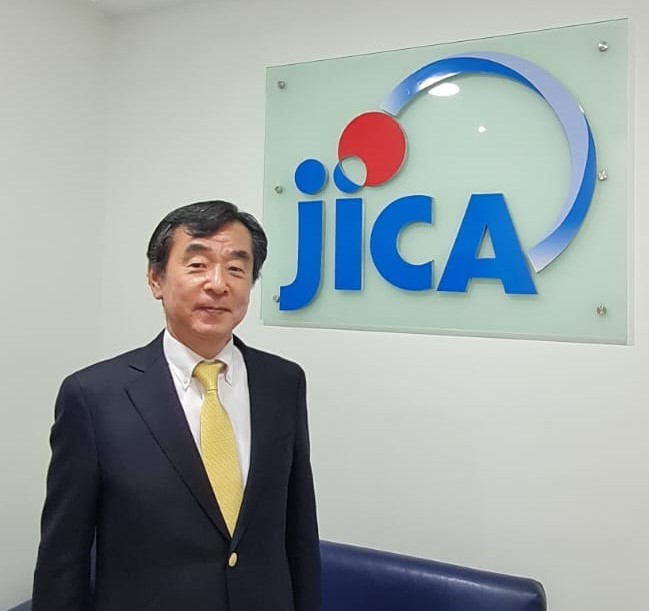Colombia is in the north end of South America. Its land is approximately 3 times the size of Japan and its population is approximately 50 million, making it the third most populated country in Latin America behind Brazil and Mexico. Colombian territory has a diverse landscape with the coastline facing both the Atlantic and Pacific Ocean, the Andean Mountain crossing the country, its capital, Bogota, located at 2600 meters above sea level and the Amazon region at the south end of the country. It also has among its particularities export products of abundant natural resources such as emeralds, oil, coal and products associated with favorable climatic conditions such as coffee and various types of flowers.

Colombians, besides being cheerful and sociable, are characterized for being hardworking and sincere. The diversity of the territory and its people make me consider that Colombia is a country has with great potential for development. As an example of this, main cities such as Bogota and Medellin show an advance in infrastructure and adoption of some technological assets that surpasses even Japan.
On one hand, Colombia has been involved since the 60s in an internal conflict with subversive groups that has lasted for almost 60 years. Even though in 2016, a peace agreement was reached with the largest guerrilla group, the Revolutionary Armed Forces of Colombia (FARC), and this also earned former President Santos the Nobel Peace Prize; unfortunately, the end of the armed conflict in Colombia has not concluded since several armed groups persist in their actions. The Petro government is enhancing efforts to achieve this goal with its policy of paz total. However, many inhabitants continue to lose friends and family members during the process and face a challenging living situation, which is also compounded by the complex migration situation in the country.
On the other hand, a severe problem afflicting Colombian society is inequality. The Gini index, used to evaluate inequality in terms of income, shows Colombia as one of the countries where inequality is most accentuated at a global level with a scale of 0.55. It is undeniable that discontent among Colombian population for the remarkable inequality is one of the backgrounds of the prolonged conflict.
In response to those challenges of Colombia, JICA will focus on the reduction of inequality as a priority and work to contribute to stabilize and improve the lives of people, including victims of conflict.
In the same way, we support measures against climate change and natural disasters as well as support further development by taking advantage of the potential of human resources and the natural diversity thereby contribute to the creation of a sustainable society.
In 2025, JICA will celebrate 45 years since its establishment in Colombia and the Japanese Overseas Cooperation Volunteers Program will also celebrate 40 years since its implementation in the country. Given the assets of our cooperation and the trust with the people of Colombia, we will strive to ensure that Colombia’s development leads the happiness and improvement of the lives of more people through the reduction of inequality.
May, 2025
Resident Representative
YAMADA Akihiko





scroll